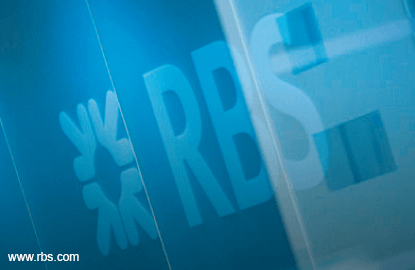
This article first appeared in The Edge Malaysia Weekly, on December 28, 2015 - January 3, 2016.

THE Royal Bank of Scotland Malaysia Bhd (RBS Malaysia) is looking to sell its businesses and at least three banks here — two Chinese and one Japanese — are keen on the banking assets, sources say.
“It’s been known in the industry for some months now that RBS Malaysia wants to sell its businesses,” a source tells The Edge, adding that the British-owned bank is open to selling its operations as a whole or piecemeal.
The two Chinese lenders said to be keen on RBS Malaysia are Industrial and Commercial Bank of China (Malaysia) Bhd (ICBC) and Bank of China (Malaysia) Bhd.
That RBS Malaysia may want to sell its businesses comes as no surprise to the banking industry.
In February, its parent company, The Royal Bank of Scotland Group Plc (RBS Group), which has been loss-making for the last seven years, announced a plan to reduce its geographical footprint to about 13 countries from 38 as at end-2014, and said that it was evaluating the options to implement the plan.
RBS Group said that in addition to its main distribution and trading hubs in the UK, US and Singapore, it would remain present in a number of Western European countries with coverage teams.
There was no mention of Malaysia.
“[RBS Malaysia] operates outside the group’s prospective geographical footprint and has ceased marketing to new customers. It continues to serve existing customers and regards its business as a going concern,” RBS Malaysia said in its unaudited condensed financial statements for the half year ended June 30, 2015.
“Going concern” is the term used for a company that has the resources needed to continue to operate indefinitely.
The businesses RBS Malaysia operates here, reduced over the years, are mainly for corporate customers. They include cash management, trade services, working capital facilities, derivatives, structured finance, foreign exchange, fixed income, corporate finance and equity capital market transactions, according to its website.
It is understood that it has some small retail operations as well, a legacy from its days as ABN Amro (RBS Group had bought Dutch banking group ABN Amro in 2007).
RBS Malaysia is profitable this year. It achieved a net profit of RM24.44 million for the half-year ended June 30 compared with a loss of RM116,000 in the same period a year ago, its website shows. Its operating revenue stood at RM51.74 million compared with RM37.52 million before.
During the six months, it disposed of its freehold land and building in Penang, along with certain office equipment and machinery, fixtures and fittings, making a net gain of RM15.3 million.
It had total assets of RM3.22 billion and shareholders’ funds of RM768.58 million as at June 30.
Andrew Sill, the country executive and managing director of RBS Malaysia, has also been the chairman of the British Malaysian Chamber of Commerce (BMCC) since July.
In the UK, RBS Group’s net loss narrowed to £3.5 billion in 2014 from about £9 billion the previous year.
To recap, the British government bought a 73.8% stake in RBS Group during the 2008 global financial crisis that cost the country £45 billion — the world’s biggest taxpayer bailout. The banking group had assets of £2.2 trillion, more than double the size of the British economy but it was running out of cash.
RBS Group was once among the world’s biggest banks by assets after expanding through takeovers and aggressive lending prior to the global financial crisis. The UK government started selling off some of its holdings in August this year, reducing its stake to 73.2% as part of a wider plan to sell £25 billion worth of shares by 2020.
Save by subscribing to us for your print and/or digital copy.
P/S: The Edge is also available on Apple's AppStore and Androids' Google Play.